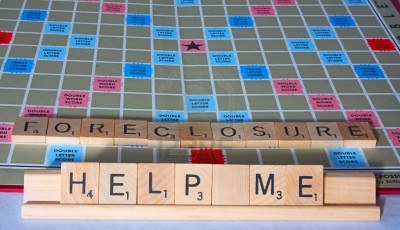Help for New Jersey Residential Foreclosures: Do Not Lose Your Home – Help is Here!
 Families across New Jersey are facing difficulties paying their home mortgages and facing foreclosure. There are many steps that can be taken to avoid foreclosure and keep the home. The important thing is to do something.
Families across New Jersey are facing difficulties paying their home mortgages and facing foreclosure. There are many steps that can be taken to avoid foreclosure and keep the home. The important thing is to do something.
Homeowners facing foreclosure should seek counsel from an experienced New Jersey real estate attorney who can ensure that your rights are protected. For example, before banks can foreclose on a home they must follow a step by step procedure. Banks must first send a notice to the mortgagee (the person who owes the money) and advise of the intent to foreclose. Foreclosure notices must allow at least thirty days to cure defaults and must have certain information which is required by law. For example, the notice must conspicuously identify the real estate which is the collateral for the loan, describe the default, and advise the homeowner of the right to cure. The foreclosures notices must also provide the amount necessary to cure as well as the name, address, and telephone number of the person to whom payment should be made. Banks which fail to provide this required notice will not be permitted to foreclose.
In New Jersey, banks are permitted to file a lawsuit to foreclose on a residential home thirty days after a homeowner has been served with a foreclosure notice. Time becomes critical once a homeowner is served with a complaint. Answers to complaints must be filed within thirty-five days after receipt of the summons and complaint. Failure to file an answer will result in default and the case will being deemed uncontested – in other words, the foreclosure will be treated as unopposed.
Banks may obtain a judgment for foreclosure very quickly once a matter is deemed uncontested. Banks are only required to mail a notice to the homeowner and advise that she has fourteen days to cure default and that upon entry of a foreclosure order the mortgagee will forever lose the right to cure the default.
We recommend that you retain an experienced New Jersey real estate attorney if you have been served with the summons and complaint, which starts the foreclosure suit, to advise you of your rights. There are many defenses to a foreclosure suit. For example, the bank seeking to foreclosure has to produce the mortgage and note (the loan document) on which it seeks to foreclose. If the bank seeking to foreclosure is not the original bank, then its must produce documents that establish that it had properly acquired the mortgage and note from the original bank.
People can also seek mediation while the foreclosure litigation is pending. Mediation will not stop the foreclosure proceeding, but will allow the parties to come together and agree to a terms that can stop the foreclosure and reinstate the loan. It is often successful.
On the other hand, filing for Chapter 13 bankruptcy reorganization can stop the foreclosure of a home and allow time to repay the outstanding delinquency over the course of three to five years, thereby allowing people to keep their homes and reducing other debts.
In New Jersey, banks are required to allow the people the right to cure a default even after litigation is filed. However, if the litigation is filed people are normally required to pay the bank’s court costs and attorneys fees to cure the default.
If you are facing foreclosure, we can help. We regularly help people to negotiate mortgages, litigate and mediate foreclosure matters, and file for bankruptcy protection. Our attorneys have extensive experience representing homeowners. To learn more about what we can do to help, e-mail us or call (973) 890-0004.
 New Jersey Lawyers Blog
New Jersey Lawyers Blog

